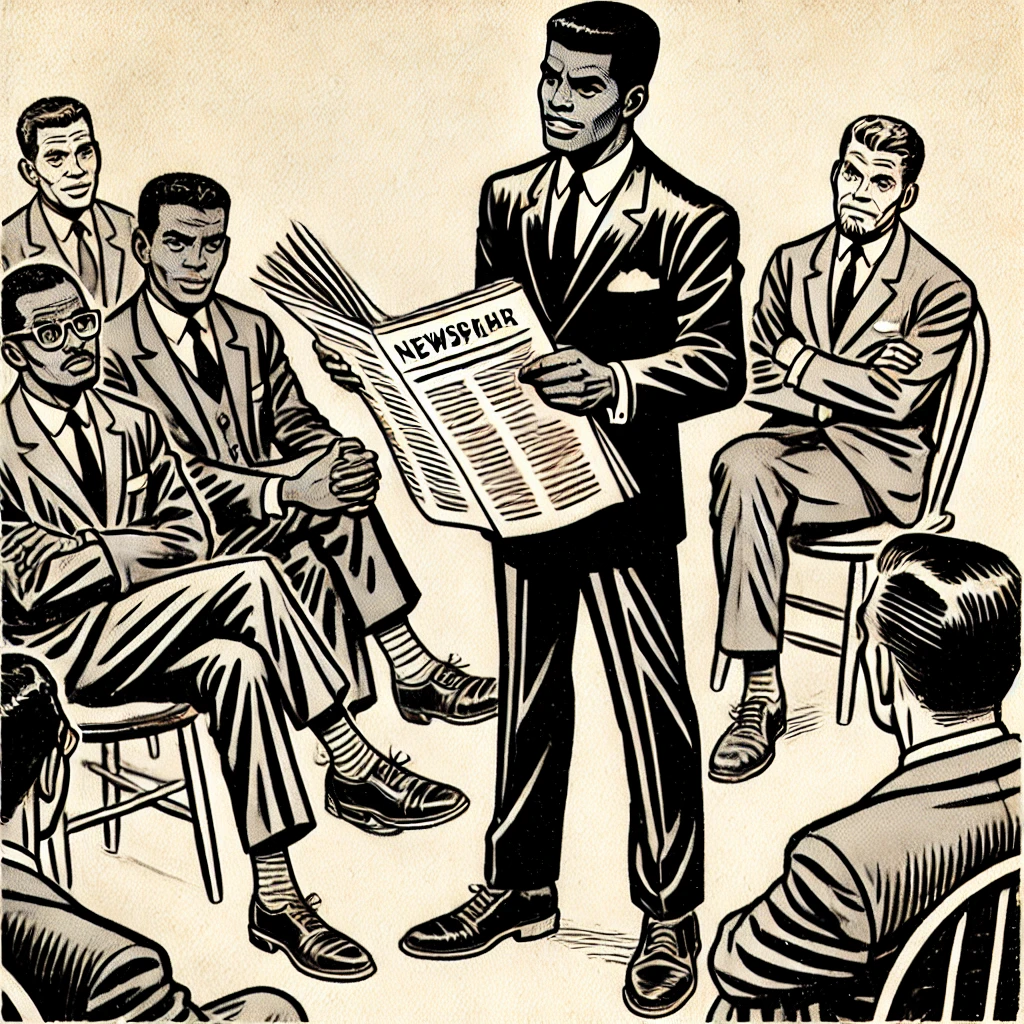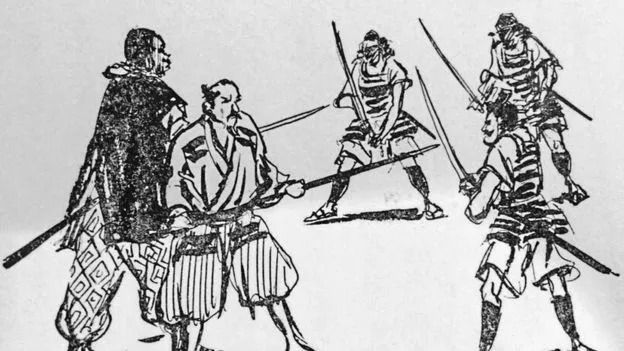Origins of Yasuke: A Journey from Africa to Japan
The historical figure Yasuke, renowned as Japan’s first black samurai, represents a unique intersection of African heritage and Japanese culture during a period of significant global exploration. Yasuke is believed to have been born in Africa, although precise details regarding his birthplace remain elusive. The late 16th century was marked by the transcontinental activities of Portuguese traders, who were largely involved in the exchange of goods, spices, and slaves. It is during this time that Yasuke’s journey likely began, as he was possibly brought to Japan as a servant or slave accompanying Portuguese missionaries.
Upon his arrival in the Japanese port city of Nagasaki in 1579, Yasuke’s appearance was striking, with his height and dark skin setting him apart in a predominantly homogeneous society. His presence captivated the Japanese, particularly Oda Nobunaga, a powerful feudal lord, who was intrigued by this extraordinary individual. Nobunaga’s curiosity led to Yasuke being granted the unprecedented status of a samurai, an honor that symbolized the fusion of cultures at a time when black history and African influences were virtually absent in Japan.
This cultural exchange not only highlighted the progressive attitudes of certain Japanese leaders but also signaled the complexities of global interactions during the early modern era. The arrival of Yasuke can be seen as a pivotal moment in Japan’s historical narrative, illustrating the impact of African heritage through the lens of samurai culture. His life story weaves together themes of identity, race, and power dynamics in a rapidly changing world, as he navigated the challenges and opportunities posed by his background. Yasuke’s journey is a reminder of the global connections that have historically shaped individual narratives, transcending geographical boundaries and calling into question the perceived limitations of race and ethnicity.
Yasuke’s Rise to Samurai Status
The story of Yasuke, the first known African samurai in Japan, begins in the late 16th century, a time of significant upheaval and transition in Japanese society. Arriving in Japan as a servant of the Portuguese Jesuits, Yasuke caught the attention of Oda Nobunaga, one of the most formidable warlords of the Sengoku period. Nobunaga, known for his keen eye for talent and ability to leverage unique individuals, was particularly fascinated by Yasuke’s distinct appearance and extraordinary physical prowess. This initial encounter proved to be the pivotal moment for Yasuke’s rise to prominence within the complex world of samurai culture.
Upon meeting him, Nobunaga expressed a genuine curiosity about Yasuke’s origins, allowing the foreigner to showcase his remarkable strength and skills. This unusual fascination laid the groundwork for Yasuke’s ascent. Despite the prevalent discrimination he faced as a black man in a predominantly homogeneous society, Yasuke’s exceptional abilities began to overshadow societal prejudices. His stature and combat skills contributed to a growing respect among the samurai, proving that merit could often transcend racial barriers.
As Yasuke became a part of Nobunaga’s inner circle, he navigated the intricate social hierarchy of Samurai life, which was heavily dictated by honor and loyalty. In a somewhat unusual move, Nobunaga honored Yasuke with a samurai title, elevating him from a foreign servant to a respected warrior. Throughout his service, Yasuke remained loyal, demonstrating not only his combat skills but also his commitment to the unification of Japan under Nobunaga’s rule. The dynamic relationship between these two figures illustrates the complexities of black history in Japan and serves as a testament to Yasuke’s individuality against the backdrop of cultural constraints. His journey as a samurai highlights both the possibilities and limitations that foreign individuals experienced in Japan during this era.
The Impact of Yasuke: A Cultural Exemplar
The story of Yasuke, the Black Samurai of Japan, extends far beyond his remarkable achievements as a warrior and servant to the great warlord Oda Nobunaga. His legacy serves as a cultural exemplar, highlighting the complexities of identity and representation within Japan and beyond. Yasuke’s presence in a predominantly homogenous society illustrates the intersections of culture, race, and history, presenting a unique narrative about the experiences of African individuals in Japan during the late 16th century.
Yasuke’s arrival in Japan is often perceived as a critical moment, one that challenged the conventional perception of Black individuals in Japanese history. He is not merely a fascinating figure; rather, he acts as a symbol of diversity, bridging the gap between East and West. This confluence can also stimulate discussions about race and cultural representation in contemporary Japan, suggesting an evolution of social norms and attitudes that can promote inclusivity. Yasuke’s legacy inspires current dialogue surrounding diversity, further pushing the boundaries of understanding about cultural exchange.
In artistic and literary circles, Yasuke’s life story has transcended its historical roots to inspire numerous works, from manga and anime to novels and films. These interpretations often depict him not only as a courageous warrior but also as a complex individual navigating the challenges of being an outsider. This embodiment of resilience and tenacity resonates with contemporary movements advocating for representation and equity, showcasing how Yasuke remains relevant to modern discussions on race. His story invites a reflection on broader themes of acceptance and the importance of including diverse narratives in the cultural discourse of Japan.
In conclusion, Yasuke’s impact on Japanese culture extends beyond the boundaries of time and geography. His story serves as a poignant reminder of the significance of representation, profoundly influencing how African people and narratives are perceived in Japan. As cultural conversations continue to evolve, Yasuke remains a powerful symbol of the richness that diversity brings to society.
The Mythology of Yasuke: Legacy and Modern Reinterpretations
The narrative of Yasuke, the renowned black samurai in Japan, has transcended historical accounts to evolve into a rich tapestry of mythology. His life, marked by extraordinary events and unique circumstances, serves as a potent foundation for reimagining themes of diversity, resilience, and belonging. Over the years, Yasuke’s legacy has found its way into various forms of media, reflecting modern society’s inclination to celebrate diversity through the lens of historical figures.
In literature, Yasuke has been depicted not just as an aide to the powerful warlord Oda Nobunaga, but as a symbol of cultural exchange, exploring the encounter between Japan and the African continent. Novelists have taken creative liberties, crafting narratives that delve deeply into his psyche and the struggles he faced, thereby broadening the scope of black history and representation in Japanese contexts. These portrayals, while sometimes romanticized or fictionalized, contribute to a greater understanding of Yasuke’s role not just as a warrior, but as an emblem of hope in a world that often emphasizes division.
Film adaptations have further propelled Yasuke into the cultural spotlight, presenting his story with a focus on action and adventure, often catering to contemporary audiences. Recent projects highlight the need for a nuanced depiction of black figures in history, celebrating their contributions while challenging traditional narratives. This cinematic approach invites viewers to engage with Yasuke’s story in new ways, prompting discussions around race, identity, and the importance of inclusivity in storytelling.
Ultimately, Yasuke’s narrative serves as an enduring reminder of the importance of recognizing diverse histories. His life not only enriches our understanding of Japan’s past but also compels us to reflect on themes of equality and representation in today’s society. By embracing and reinterpreting Yasuke’s legacy, we can foster a more inclusive dialogue about black history and its relevance in the global context.








